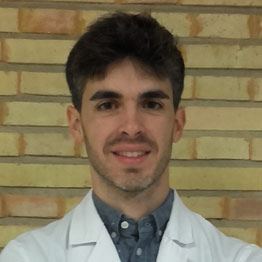Bioactive compounds and functional foods
Lines of research
In this line of research The presence of bioactive compounds (mainly prebiotic (poly)phenolic compounds) in processed and unprocessed food matrices, supplements and by-products is explored; as well as the bioaccessibility of these compounds after being subjected to an in vitro gastrointestinal digestion process and the action of the intestinal microbiota. Likewise, through programs of study of intervention in humans, the study of the in vivo Bioavailability (ADME) of these compounds is addressed profile of phenolic metabolites generated after their ingestion, and their potential beneficial effects on health such as: positive effects of some industrial and culinary processing techniques, elucidation of different metabolic pathways and identification of intake biomarkers and metabotypes of bioactive foods that allow relating their intake with the beneficial effects. The activities of research In this line, they focus on the analysis of food and biological samples (blood and urine) using chromatographic equipment (HPLC and GC) with mass spectrometry, which allows them to become experts in these techniques and metabolomic analysis.
In addition, the functional effect of bioactives and probiotics that, both free and in combination, have beneficial effects is evaluated. To this end, a wide range of in vitro (cell lines, co-cultures) and in vivo ( C. elegans , rat, mouse, humans) models are available, which allow the study at both the phenotypic and molecular level of various parameters related to obesity, such as adiposity, weight control, insulin resistance, hepatic steatosis, oxidative stress and inflammation. Finally, programs of study mechanistic through metagenomics (study of the effect on the composition of the intestinal microbiota) and non-targeted metabolomics (HPLC-TOF), which allows the identification of metabolites of bacterial origin ( postbiotics ) related to the beneficial effects of these probiotics and prebiotics.
This line of research addresses the challenge to formulate ingredients or vehicles capable of incorporating bioactive compounds into food matrices for the development of functional foods. Both the nutritional/health aspects and the technological aspects, which allow for easy-to-apply processing lines, and the economic aspects are studied. In addition, the stability and shelf life of the developed foods are studied, as well as the bioaccessibility (through in vitro digestion) of the nutrients and bioactive components, as a consequence of the product manufacturing process. There is experience in the development food both in the meat and bakery sectors.
Team researcher
 → Concepción Cid (manager) → Concepción Cid (manager) |
 → Diana Ansorena → Diana Ansorena |
 → Paula Aranaz → Paula Aranaz |
 → Icíar Astiasarán → Icíar Astiasarán |
 → Carlos J. González Navarro → Carlos J. González Navarro |
 → Iciar Ludwig → Iciar Ludwig |
 → Mª Paz Peña → Mª Paz Peña |
|
 → Gwenaelle Ceniceros
→ Gwenaelle Ceniceros
→ Adriana Andrés Arija
Maria Cartagena
Maialen Uriz
Marina Andrés Múñoz
Teresa Paramo Soto
Itziar Ariz
Maria Cristina Huamann Titto
Contact
Concepción Cid
manager from area
ccid@unav.es
C/ Irunlarrea, 1
31009 Pamplona, Spain
+34 948 425600
Contact
 →
→